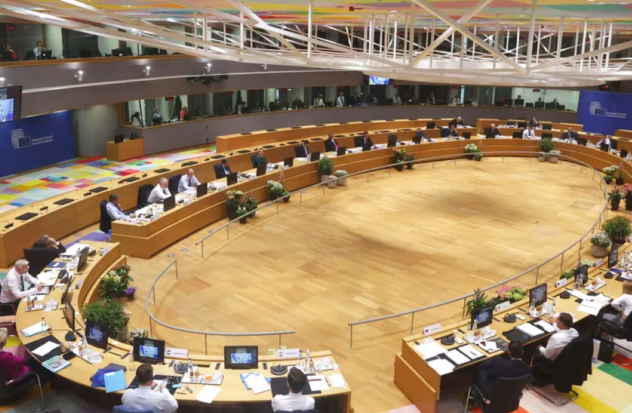CARACAS.- The European Union (EU) reiterated this Tuesday that the lifting of sanctions against some members of the Electoral Branch of Venezuelaamong them the current president of the organization, Elvis Amorosoit was a “gesture” to ensure that the next presidential elections are competitive.
“The EU sanctions regime is autonomous (…) Member States decided during the regular review of sanctions to prolong them, but they did two important things taking into account the events in Venezuela“, explained the community spokesperson for Foreign Affairs Peter Stano about the decision to extend the individual sanctions against officials of the Nicolás Maduro regimeCocuyo Effect reviewed.
On Monday, the EU announced that it was temporarily lifting sanctions against four officials related to Venezuela’s electoral authority, including Amoroso, in recognition of the steps taken ahead of the July presidential elections.
On the EU list there are more than 50 Venezuelans accused of acts of repression or undermining democracy. In addition to Amoroso, the other directors who were excluded from the list are Xavier Moreno Reyes, former secretary general of the CNE, and two more former directors, Socorro Hernández and Leonardo Morales.
Stano indicated that the decision aims to “strengthen Venezuelan efforts towards inclusive and competitive presidential elections.”
The measure comes two and a half months before the July 28 elections, in which Maduro is seeking re-election for the second time for a six-year term and which have been questioned by the opposition for blocks in the presentation of rival candidates.
Amoroso was sanctioned in June 2020accused of undermining democracy and the rule of law in Venezuela, which prevented him, among other measures, from entering the territory of the European bloc of countries and imposed a freeze on his assets.
The European spokesperson also indicated that the restrictive measures in force for the rest of Venezuelan officials will be extended “exceptionally” for a shorter period, until January 10, 2025, “the date scheduled for the inauguration of the president-elect.”
Amoroso Disqualifications
For his part, Amoroso rejected the EU’s decision, questioning that it does not extend to other authorities of the regime.
Amoroso maintained that it would be an act of “disloyalty” to accept the measure of the European regional bloc and demanded the “total” lifting of the sanctions, including those imposed by the US.
“I do not accept the lifting of sanctions that have been imposed on me because they are immoral and contrary to my citizen values,” said the president of the electoral body, who was a pro-government legislator and is a close collaborator of Maduro.
And he added: “I demand the comprehensive and unconditional cessation of the unilateral coercive measures of the European Union, as well as any other blackmail mechanism that seeks to interfere in the free and sovereign development of the Venezuelan political process.”
During his management as comptroller, between October 2018 and August 2020, Amoroso disqualified dozens of opposition politicians to hold public office, including last year the opposition leader María Corina Machadojust when he announced his decision to opt for the unitary opposition presidential candidate in a primary.
Finally, Machado was unable to register her candidacy due to the ban on holding public office for 15 years, despite the fact that after years she was never subjected to any trial.
In Venezuela, political disqualification is an accessory penalty that applies when there is a final judicial sentence for a punishable act committed by a person when it is determined that he or she incurred abuse of power, of office, among other cases provided for in the country’s laws. However, critics of the regimes of Maduro and his predecessor, the late Hugo Chávez, denounce that disqualification has been used for years as a political weapon.
The Maduro regime also demanded that all sanctions be lifted.
“In a deceptive manner, they remove some members of the National Electoral Council from the sanctioned list to supposedly send a signal of good faith or relief and we flatly say that we reject that position,” said the Venezuelan Foreign Minister, Yván Gil.
Last March, the CNE invited the European Union, among other international organizations, to send observers for the presidential elections.
On that occasion, Amoroso highlighted that he extended the invitation for them to participate “as long as they comply with the requirements and established constitutional and legal regulations.”
Maduro’s opponents demand that the elections be tested as well as the electoral system, discredited after years marked by the disqualification of parties and some of the most popular opposition candidates.
Some fear that the proximity of the election date, called only last March, could make it difficult to form a broad observation mission to monitor the different stages of the electoral process.
Source: With information from AP / Cocuyo Effect

